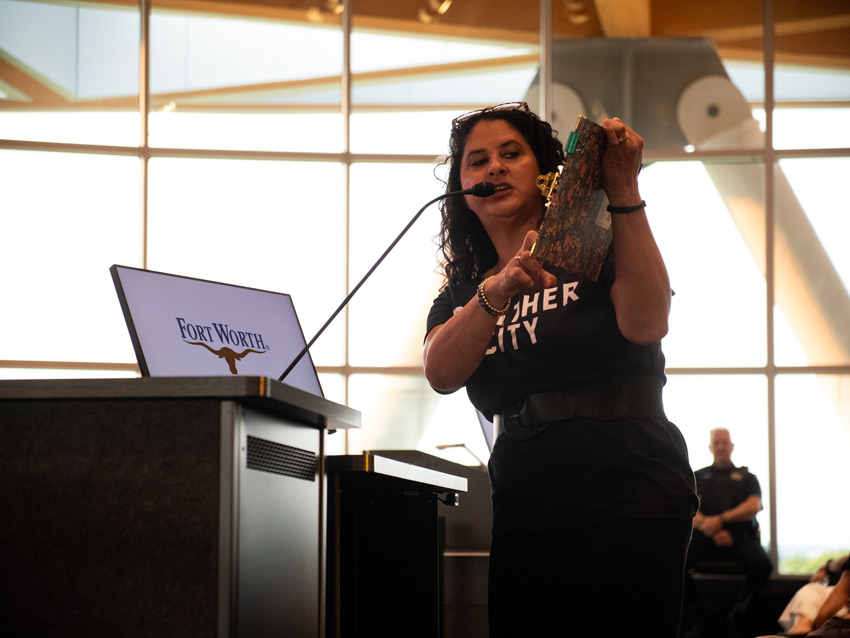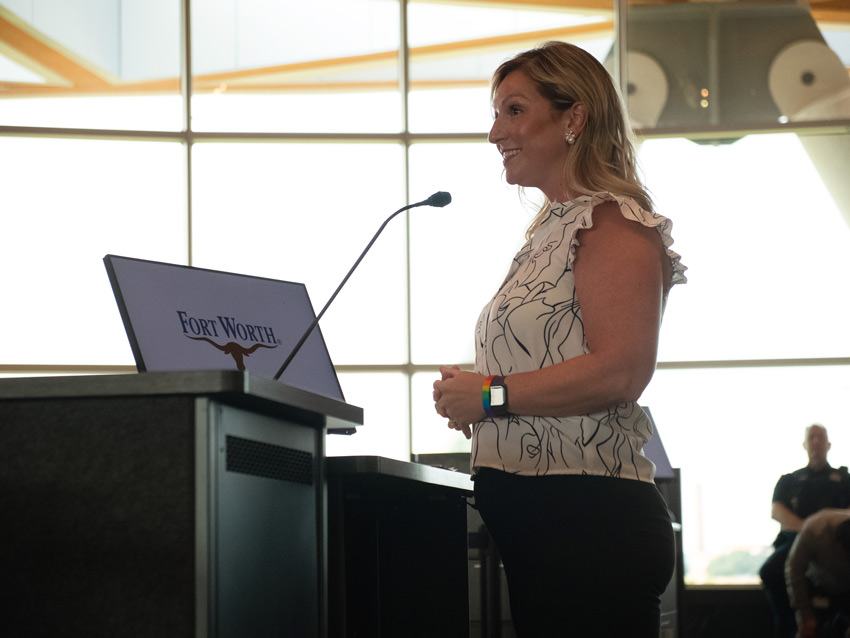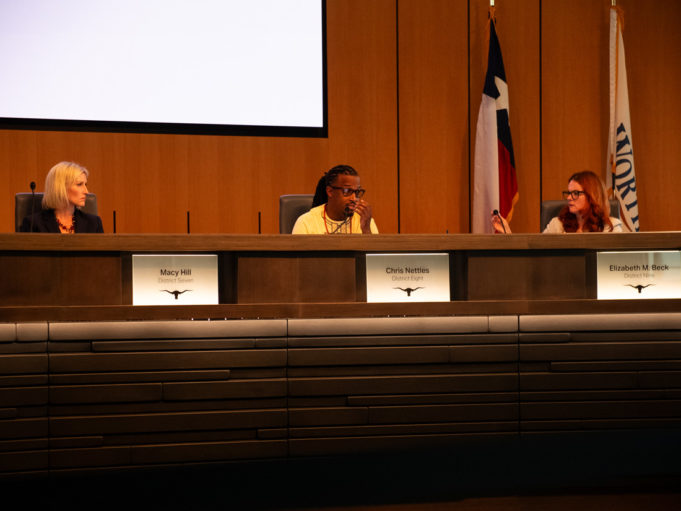Hundreds of residents filled Fort Worth Council chambers last night to speak out against council’s effort to suspend programs fostering Diversity, Equity, and Inclusion (DEI), complying with executive orders issued by Donald Trump to preserve federal funding.
More than 70 speakers, including teachers, business owners, real estate agents, and members of the progressive group Indivisible 12, testified in favor of maintaining DEI programs across nearly five hours of public comment. Many called the federal mandate a ransom imposed at the expense of Fort Worth’s Black, brown, immigrant, female, and LGBTQIA+ communities. Nearly every speaker urged councilmembers to show backbone, refuse to bend the knee, and ensure that financial growth and opportunity is accessible to all residents, not just wealthy whites.
The DEI programs were suspended in a 7-4 vote.
The programs helped the city support equitable hiring practices, minority-owned business development, and inclusive policy frameworks. In their place, Fort Worth will implement a Small Business Development program that removes race- and gender-based criteria while partnering with the Black Chamber of Commerce, Hispanic Chamber of Commerce, and Fort Worth Chamber of Commerce to promote fair business access.
The preserved federal funding totals $277 million, including roughly $40 million annually to support services like public safety, infrastructure, utilities, and city worker salaries.
Critics of the new program warn that without dedicated protections, minority-owned businesses may face increased discrimination through discriminatory lending, resource allocation, and city policy, furthering systemic disadvantages. Councilmember Deborah Peoples and others likened the change to “putting lipstick on a pig,” arguing the new program fails to meet the needs of Fort Worth’s marginalized communities.
Councilmembers in favor acknowledged the difficulty of the vote but cited the funding as essential. Those opposed said that while losing funding would pose challenges, complying sets a dangerous precedent, one in which federal overreach undermines local values, dignity, and equity commitments.
Councilmember Chris Nettles argued this was not a simple yes-or-no decision and proposed alternatives, such as joining Seattle and Portland in litigation against the federal government, redistributing city funds, and raising local taxes, all in service of retaining DEI programs that benefit disenfranchised residents.
Fort Worth’s Small Business Development program will begin on Sep 1.














